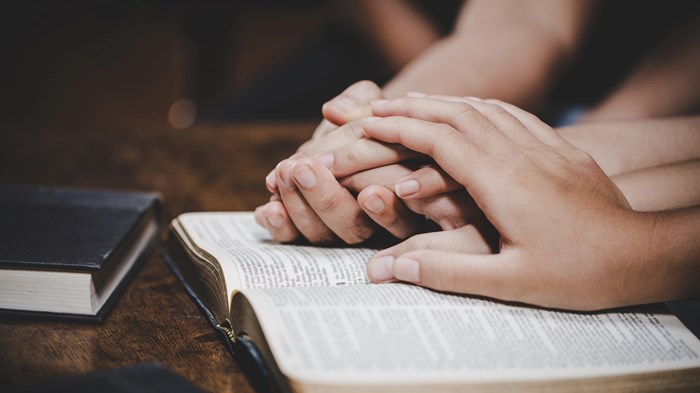Four Ways the Church Can Love Her Community in Times of Crisis

How should the church love her community during times of crisis?
This was the question our church in Austin wrestled with last year when Texas experienced a devastating winter storm that left more than 4 million people without power, water, and food for seven days. During that time, at least 22 people died in connection. The consequences of those storms also lingered for months as many in our community were unable to find food while others needed rent assistance.
Most of our congregants were left without power in their apartments, and we began scrambling to find housing for folks. By day two, half of our congregants were living with the other half. The shelves of our one local grocery store had been depleted pre-storm and now even the fast-food restaurants in the area were running low on supplies. By day four, we were low on food as were many others in East Austin. We were getting phone calls from managers at apartment complexes and neighbors, asking if we could spare food, money, or blankets. Everyone was hurting, and resources were dwindling fast.
It would have been easy to keep what little resources we had to ourselves. In fact, in times of crisis, some churches only use their resources to care for their own congregants. For example, I’ve heard Christians quote Galatians 6:10: “Therefore, as we have opportunity, let us do good to all people, especially to those who belong to the family of believers.” Some have used verses like this to argue that the church’s priority should be for their own only. “What if our congregants are hurting?” some ask. “Shouldn’t we take care of our brothers and sisters in Christ first, those who are members of our specific congregation?” This thinking, however, creates a false dichotomy. It makes us believe that we can only care for ourselves or others, not both. That is nothing more than a mentality of scarcity.
The entire community should know they can count on the church and feel cared for by the people of the church.
When a church hoards its resources, she falls short in truly understanding and offering the biblical vision of holistic care that the body of Christ is called to. In Scripture we see that the church should never see it as a waste to care for non-Christians. In times of crisis (and in times of stability, for that matter) the church should open up its resources for the entire community and live out an embodied theology of community care. The entire community should know they can count on the church and feel cared for by the people of the church. We must open up our resources as best we can to the entire community, not just our own congregants.
Here are four ways that you and your church can love your community during a crisis as well.
1. Be Connected with the Poor and Needy in Your Community Pre-Crisis
You won’t know what the needs of a community are unless you’re already on the ground, building relationships, and connected to the people, places, and needs around you. Our church meets in another church’s gymnasium in East Austin, and we focus the majority of our efforts in reaching the people in the government housing, apartments and homes in the close radius surrounding where we meet. Within our community -- and in our church -- are immigrants, some of whom are undocumented. In stable times (by that, I mean outside of major natural disasters), we work with people to apply for documentation, provide rent assistance and groceries for single moms, set up handwashing stations to those experiencing homelessness and more. The people in our community are our friends; we know them on a first-name basis. So, as soon as the winter storm hit, we immediately began reaching out to folks, asking what their needs were, and then our relief work as a church was developed based on what was requested.
This is important for churches as well as any organization or non-profit seeking to help in times of crisis -- you can’t just decide in a vacuum what is needed, buy something in bulk, and drop it off somewhere. Relief work during a crisis must always be driven by real people and real requests. The church must tailor its resources to the needs of specific people. Some people will need medicine; others will need food. Some might want groceries; others will want gift cards to buy their own groceries. You won’t know until you ask. If you as a church are not yet fully connected and invested in your local community, ask yourself how you can start building in-roads and developing relationships with local men and women.
2. Partner with Others Doing the Work
The plain and simple truth is that no single church can do relief work alone, and we shouldn’t try to do it alone either. Times of crisis offer a unique opportunity for the body of Christ to truly live out as a collaborative body with different parts all working together.
For example, in the aftermath of the winter storm in Texas:
-
We partnered with a local church to deliver hot meals, groceries, and water to immigrants in our community. Another pastor and his wife delivered groceries and water to my husband and I, which was a huge blessing as it helped us stay focused in our own community efforts.
-
We partnered with Christian non-profits to deliver hundreds of breakfast tacos, coffee, and cases of water to two different apartment complexes with 60 units each who had all gone without power and water that week.
-
Our church also partnered with another church to secure bottled water for local families. This church also helped us deliver food to people in our congregation and community who requested benevolence meals.
You’d be surprised at how many people are willing to help and want to help. In moments of crisis, think about who might want to partner with you. Don’t be afraid to reach out and ask local churches, leaders, and organizations if they’d like to collaborate or donate financially. Then delegate, delegate, and delegate some more.
3. Be Willing to Suffer the Cost
Caring for your community both individually and as a church will require an immense amount of sacrifice. You’re not only caring for your own family’s needs in the midst of a crisis, you’re also looking out for others. There’s a double sacrifice involved.
Yes, get rest. Yes, practice soul care. Stay rooted in God's Word and prayer. Reach out for help. My husband and I were so grateful for all the folks who took care of us during that difficult time, bringing us groceries and food. In the midst of taking care of so many other community members, we weren’t able to do that great of a job of caring for our own family. Our family practically ran out of food at the end of that week and along with being physically and emotionally tired, we were also very hungry.
This is in some ways parr for the course. Caring for a community in crisis will take a lot out of you. Even now, after the winter storm is gone, the weather has warmed up, and people have their power back, I still remember the ways my body wrestled for months afterward with feelings of flight, fight, or freeze. I felt burnt out. There was a weight I felt for the families in need, imagining what they were going through and feeling compelled to do something about their lack that lingered long after folks were able to stabilize. Disasters and crises will exact its own kind of trauma. As followers of Jesus, we must not be naive. We must know what we are signing up for, to see the cost that lies ahead, and then still be willing to step into the storm for the sake of those who are hurting even more than we are.
4. Show Gratitude and Thanks
Finally, show gratitude and thanks to everyone who serves. Too often, an individual leader will try to take credit for the deeds of many, or the church or non-profit is spotlighted without attention given to the everyday folks who showed up and did the groundwork. Every person who shows up, who donates, who delivers meals, shelters someone in need, calls someone up for prayer or counseling should be acknowledged and thanked. Give them shoutouts on Sunday morning, on your church’s social media platforms, and also personally, either through phone calls, hand-written thank you notes, or something else that is meaningful. Part of the reason people serve is to show that they are part of a bigger community that is going through similar things. Thanking and acknowledging folks throughout this process is also part of how we build bonds, deepen friendships, and grow in solidarity. It can feel like a minor thing, but voicing gratitude, especially if you are the leader or pastor, goes a long way.
May we, as the church, show up in times of crisis for our community, and may God equip and strengthen us for the work ahead.
Michelle Ami Reyes, PhD, is the Vice President of the Asian American Christian Collaborative and the Scholar in Residence at Hope Community Church. She is the author of Becoming All Things: How Small Changes Lead to Lasting Connections Across Cultures and co-author of, The Race-Wise Family: 10 Postures to Becoming Households of Healing & Hope. Dr. Reyes has contributed to several book chapters including The Jesus I Wish I Knew in High School and Take Heart: 100 Devotions to Seeing God When Life's Not Okay. She serves on the board for Redbud Writers Guild, is a writing fellow at Missio Alliance, and a regular contributor at (in)courage and Think Christian. Her writing on faith and culture can be found in many other publications, including Christianity Today, Patheos, and Faithfully Magazine. She lives in Austin, Texas with her pastor husband and two amazing kids. You can connect with her and her work at https://michelleamireyes.com.
The Better Samaritan is a part of CT's
Blog Forum. Support the work of CT.
Subscribe and get one year free.
The views of the blogger do not necessarily reflect those of Christianity Today.






















